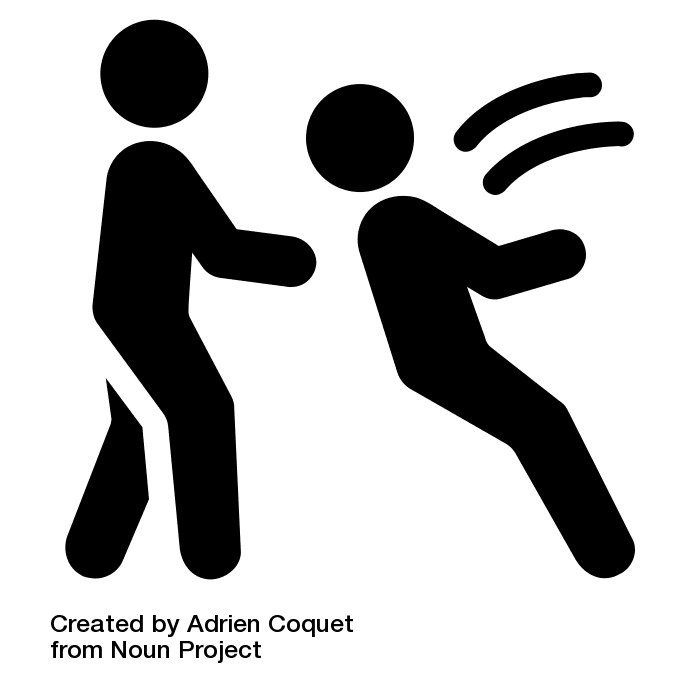Just notice how many people we need to trust when we carry out economic transactions. We assume that when we buy something with a credit card, the business won’t keep running charges on it beyond what we owe. We assume that what we buy will work, more or less, as advertised. The business assumes that our credit is good and that we aren’t stealing merchandise. Sometimes, of course, people do steal, get ripped off, and become victims of credit card theft. But overall we have to trust the various participants in the marketplace.
Social trust is necessary in our political life. Citizens have to agree to abide by certain processes in order to have any kind of self-government. Notice, though, how our last two presidential elections have been characterized by distrust. In 2016, many Democrats thought Donald Trump was not legitimately elected since he lost the popular vote and insisted that he was put into office by the Russians. Now in 2020, President Trump and many Republicans believe that he was defeated by election fraud, so that the election of Joe Biden is illegitimate.
Notice too how the COVID-19 pandemic is demonstrating our lack of social trust. Many Americans won’t get the vaccine because they don’t trust the government or don’t trust the pharmaceutical companies or don’t trust the scientists or don’t trust Donald Trump, whose Operation Warp Speed gave us a vaccine in record time.
There is often good reason not to trust our institutions, our systems, our elites, and our fellow-Americans. I’m not denying that at all, and, in fact, I share a lot of it. But when trust erodes past a certain point, a nation is in trouble.
Kevin Vallier has written an article in the Wall Street Journal (subscription required) entitled Why Are Americans So Distrustful of Each Other?
He surveys research that demonstrates the extent to which Americans’ sense of trust has gone down. For example, in 1968, over half of Americans (56%) believed that most people can be trusted. In 2018, less than one-third (31.5%) believed that.
Such attitudes are generational. Those trusting souls in the 1970s are still relatively trusting today. Among Americans over 65, only 29% said that most people can’t be trusted. But among Americans aged 18 to 29, 60% believe most people can’t be trusted.
This is also a distinctly American phenomenon. In all other established democracies, social trust has been increasing. From 1998 to 2014, the percentage of citizens who think most people can be trusted has gone up from 56.5% to 67% in Sweden, one of the highest levels in the world. Australia has gone up from 40% to 54%, and Germany has gone up from 32% to 42%. At least the United States is more trusting than Brazil, with a rate of only 5%.
So why don’t we Americans trust each other more? Vallier cites several possible reasons that are being put forward, though each seems to be inadequate. Homogeneous societies tend to be more trusting than diverse societies. That might help to explain Sweden, but the effect goes away when the diverse communities become less segregated, as has been happening in the U.S.A. Countries in which economic and political corruption are a way of life are less trusting. That helps explain Brazil, but the U.S.A. is not as corrupt as other societies with greater trust (though I would argue that corruption or at least the perception of corruption may be a factor here). Income inequality seems to be a factor, but that reached a peak in the U.S.A. in 2007, yet trust has continued to decline.
Vallier suggests that our political polarization may be a factor. He cites a study that found that in 2017, 70% of Democrats said that Donald Trump voters could not be trusted, with 70% of Republicans saying the same of Hillary Clinton voters. But surely we don’t know the political affiliation of most strangers that we encounter every day, but we still tend not to trust them.
Those of us in the non-trusting community could answer, though, that people and institutions, on the whole, are just not trustworthy. Look at what our government does and what it covers up! Look at what the corporations and big businesses are doing! Look at what people are capable of! Perhaps this attitude has something to do with what we blogged about recently: Americans’ tendency to believe in the doctrine of original sin. Our skepticism about human nature may well be well-founded.
But are Americans really so much worse than Swedes? Are we more immoral–less honest, more corrupt–than these other countries in which social trust is high?
Do you have any theories about why Americans have so little trust for each other? Assuming that this is a problem, do you have any ideas at how social trust might be built up?
Image: trust by Adrien Coquet from the Noun Project
 Social trust–the assumption that other people will live up to their obligations–is a glue that hold societies together. And in the United States, social trust is declining.
Social trust–the assumption that other people will live up to their obligations–is a glue that hold societies together. And in the United States, social trust is declining.












